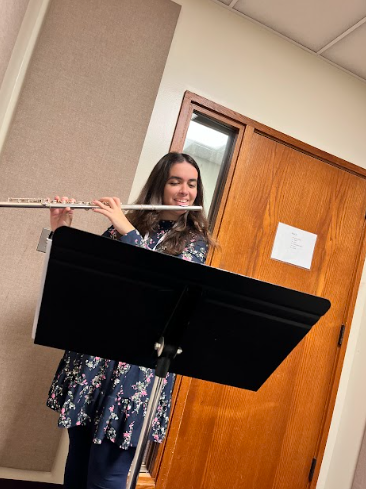As the school year begins, many students at LHS find themselves enrolled in Advanced Placement (AP) courses for the first time. The New York State Higher Education Services Corporation’s website (hesc.ny.gov) defines the AP program as “college-level courses [and exams students] take in high school.” In May, students take an exam and are graded on a one through five scale, with one being the lowest possible grade and five being a perfect exam score.
The AP exams are already starting off on the wrong foot, taking place a whole month before the Regents exams. This gives teachers less time to teach their more intense courses, a combination that already sounds like the perfect mixture for stress. This notion is supported through an article published on the University of South Florida’s website (usf.edu) titled “Multiyear Study Investigated Stress in IB and AP Students.” In the article, the researchers note how “a high percentage of students in accelerated programs had significantly higher levels of stress compared to the rest of the school population.” College resources encourage students to take these stressful courses, such as PrepScholar on their website (prepscholar.com), which advises students to take a minimum of one through five APs, even if they are looking at less selective schools. This presents an issue for students’ mental health as well as for their wallets: Those who take an AP exam must pay $97 to do so, meaning that their exam costs could add up to a significant amount quickly.
The information above can be quite concerning for a new AP student, but one should not fret. After all, the benefits provided to AP students far outweigh the downsides. Senior Aubrie-Lynn Wilkonski, who will have taken six AP classes before graduating, explained this best when she described her personal experience taking these courses. “While taking my AP courses, I [felt] the coursework certainly [helped] me expand my thinking, whether it be in [AP] Literature, Government, or Economics. Although at times I [previously felt] a little overworked or stressed, I know this is all preparation for the upcoming AP Exams later in the year,” Wilkonski shared. She continued that students should consider taking AP courses as they are not only “beneficial to [students] when applying to college, but it will prove to be a great opportunity to participate in an academic challenge.” With this, Wilkonski explained how the stress is not without good reason; it is simply the byproduct of a challenging class that will ultimately educate students and help them further develop and polish their learning skills.
However, some teachers recognize that expecting students to take a minimum of one to five exams, like PrepScholar suggests, is an unrealistic general standard. Global history and sociology teacher Koren Pena advises,“Students should do what they feel they can manage effectively… Families should discuss the pros and cons and decide together before jumping into a full course load of AP classes.” After all, school is about the futures of students, not how many AP classes they can juggle around. The idea that students should take a minimum of one to five APs is further discouraged by the College Board itself, the provider of the Advanced Placement program. According to the College Board’s website (collegeboard.org), 52% of students only took one AP exam. Students who are still concerned about the cost of AP courses and their exams should note that a score of three or above makes a student eligible for college credit, depending on what college he attends. AP U.S. History teacher Michael King chimed in: “If [students] work hard, they can earn college credits to save them potentially thousands of dollars and many hours in college.” Therefore, AP courses can offer considerable returns on investment.
In addition to their core benefits, AP courses prepare students for college classes, teach them essential time-management and study skills, help them stand out as college-ready, boost their grade point average (GPA), allow them to save time and money on college, and help them discover a potential career path. Fundamentally, the benefits that AP classes offer to students far outweigh any challenges they may present.
































